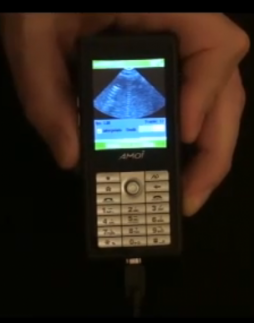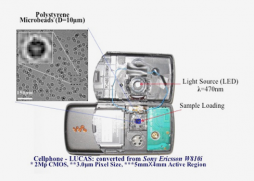Telemedicine
Posted by kelechiea on Jun 17, 2011
mHealth: New Horizons for Health Through Mobile Technologies data sheet 1659 Views
Author:
World Health Organization (WHO)
Abstract:
The use of mobile and wireless technologies to support the achievement of health objectives (mHealth) has the potential to transform the face of health service delivery across the globe. A powerful combination of factors is driving this change. These include rapid advances in mobile technologies and applications, a rise in new opportunities for the integration of mobile health into existing eHealth services, and the continued growth in coverage of mobile cellular networks.
According to the International Telecommunication Union (ITU), there are now over 5 billion wireless subscribers; over 70% of them reside in low- and middleincome countries. The GSM Association reports commercial wireless signals cover over 85% of the world’s population, extending far beyond the reach of the electrical grid.
For the first time the World Health Organization’s (WHO) Global Observatory for eHealth (GOe) has sought to determine the status of mHealth in Member States; its 2009 global survey contained a section specifically devoted to mHealth. Completed by 114 Member States, the survey documented for analysis four aspects of mHealth: adoption of initiatives, types of initiatives, status of evaluation, and barriers to implementation. Fourteen categories of mHealth services were surveyed: health call centres, emergency toll-free telephone services, managing emergencies and disasters, mobile telemedicine, appointment reminders, community mobilization and health promotion, treatment compliance, mobile patient records, information access, patient monitoring, health surveys and data collection, surveillance, health awareness raising, and decision support systems.
Posted by Nadi.Kaonga on Apr 26, 2010
As part of a "Mobile Telemedicine" initiative undertaken by the Millennium Villages Project in Ghana, I have been researching and documenting existing software platforms that enable and support remote consultation activities.
How is mobile telemedicine defined? According to the the Rockefeller Foundation,
Telemedicine is the use of medical information exchanged from one site to another via electronic communications to improve patients’ health status or for educational purposes. It includes consultative, diagnostic, and treatment services.
Mobile health information technology (mHealth) typically refers to portable devices with the capability to create, store, retrieve, and transmit data in real time between end users for the purpose of improving patient safety and quality of care.
Posted by SushmitaNY on Aug 16, 2009
Medical imaging has revolutionized western medicine in the past two decades, with the frontiers being constantly pushed to allow better, earlier and faster diagnosis for a variety of diseases. The story is quite different, however, in the developing world where, according to recent WHO estimates, over 50% of medical equipment that is available is not being used because it is too sophisticated or in disrepair or because the health personnel are not trained to use it. WHO further estimates that some three quarters of the world population does not have access to medical imaging.
One problem that may be at least partially responsible for this discrepancy is that typical medical imaging equipment is large, non-portable, expensive, require multiple components to work in concert (data acquisition, data analysis, image rendering and visual display), and require highly trained personnel to operate them optimally.
Posted by KatrinVerclas on May 04, 2009
Take a low-cost ultrasound probe, a Windows mobile phone, and the skills of two scientists at Washington University in St Louis in the United States, and you get the world's first mobile-phone ultrasound instrument.
USB-based ultrasound probes have been around since 2005, offering a much cheaper and more portable alternative to larger ultrasound machines. Probes provide increasingly high-quality imaging for a tenth of the cost. A typical, portable ultrasound device costs around $20,000, while USB probes sell for around $2,000 right now - and the price is declining. Probes are ideally suited for first-responders and for primary care in developing countries, for example.
The small probes are connected to a phone with a USB cord that have been, typically, connected to a laptop for displaying the images. But carrying around laptops for transmitting images is not an option in many clinics in developing countries for lack of consistent electricity, heat, and lack of Internet access.
Posted by KatrinVerclas on Dec 22, 2008
Wired has finally picked up the story that has been circulating for a while -- the phenomenal medical diagnostic hack using a mobile and beginning to turn it into a lab for developing countries.
Aydogan Ozcan, assistant professor of electrical engineering at the UCLA School of Engineering and Applied Science and a member of the California NanoSystems Institute (CNSI), and his team of graduate and udergraduate students developed a medical diagnostic application from a mobile phone, in effect bringing the hospital to the patient.
Posted by dsasaki on Jul 31, 2008
Krishnan Ganapathy, a practicing neurosurgeon, is the former president of the Neurological Society of India and current president of the Apollo Telemedicine Networking Foundation. He is also the co-founder of the Telemedicine Society of India, a member of the National Task Force on Telemedicine and an adjunct professor at IIT Madras and at Anna University. He is currently involved in preliminary studies on the clinical evaluation of patients based in rural areas of India, Bhutan, and Bangladesh using wireless telephony. Along with his colleague Aditi Ravindra, Dr. Ganapathy is one of the leading thinkers on mobile health in India and around the world.
What follows is an edited, abridged transcribe from a conversation we had at Rockefeller's Making the eHealth Connection conference. An MP3 of our entire discussion is available for download.
DS: A lot of people don't have an understanding of what mHealth is, what telemedicine is, and how mobile phones are being used by physicians, surgeons, and health care professionals. You've been on the cutting edge of all this for a long time ... can you talk to me about how the way you treat patients has changed over the years with the use of mobile phones?





